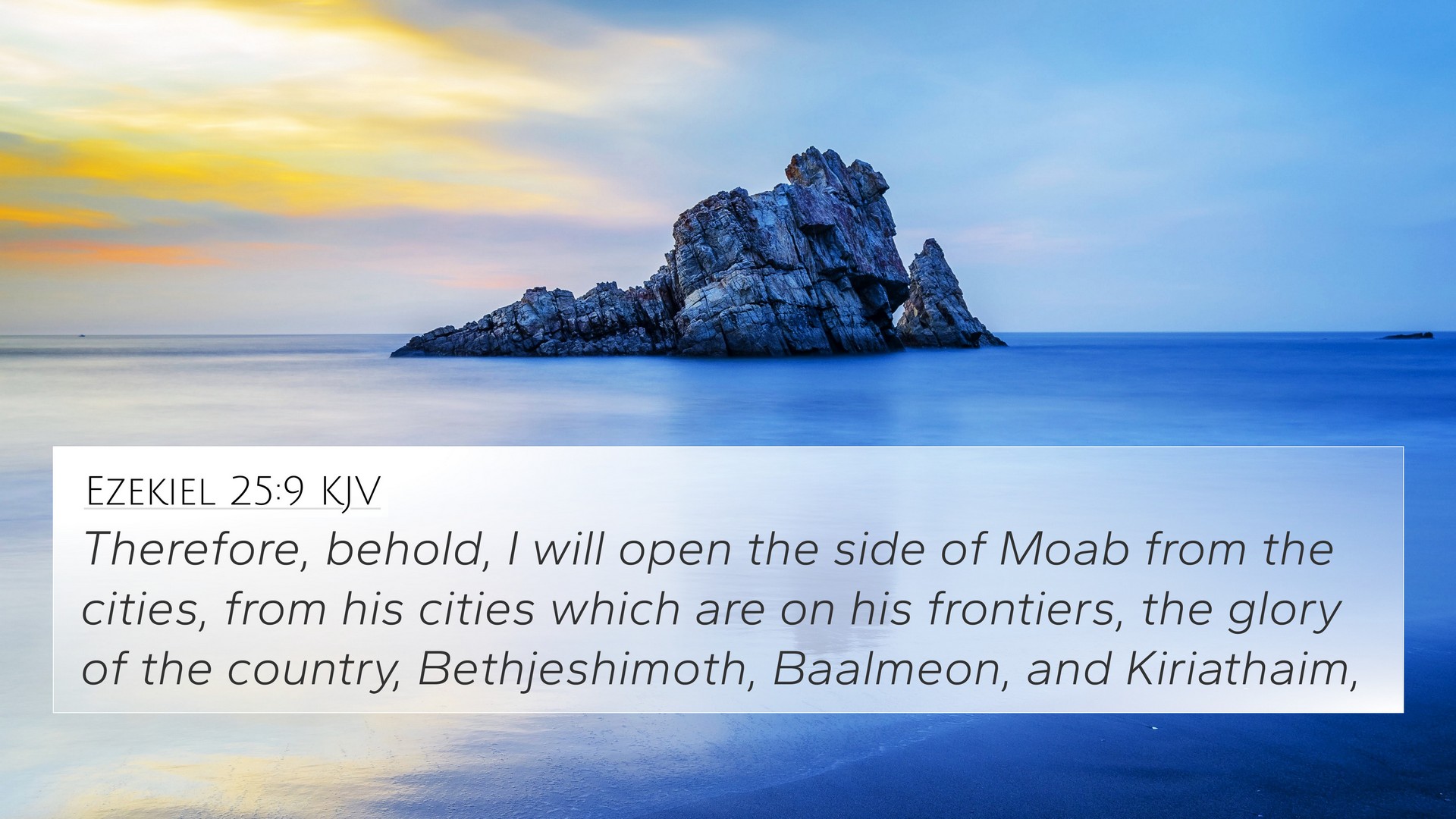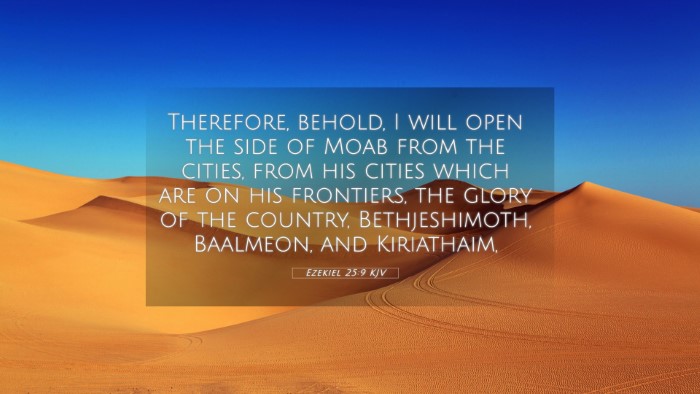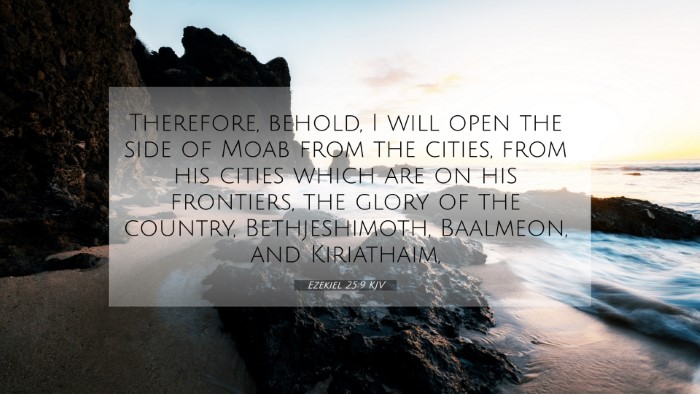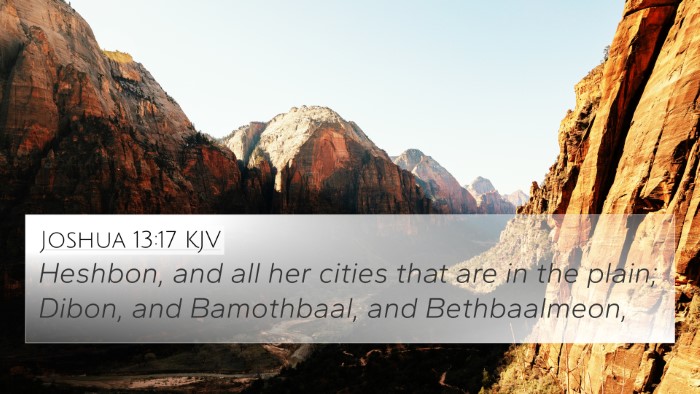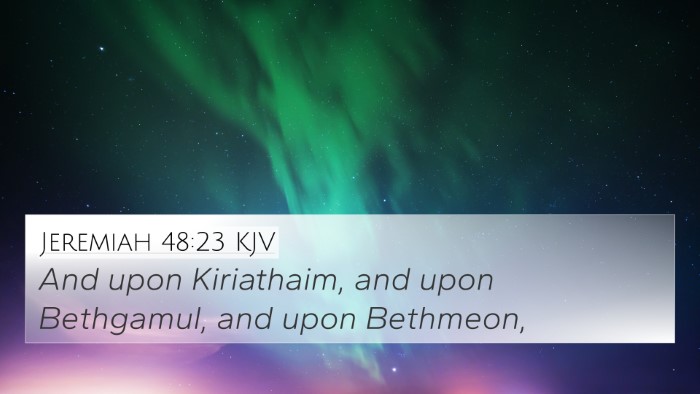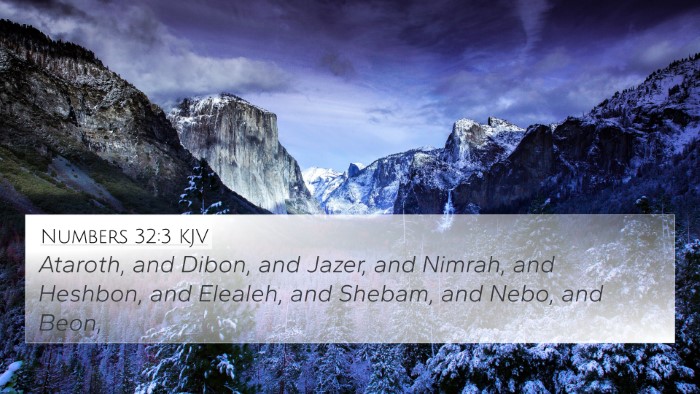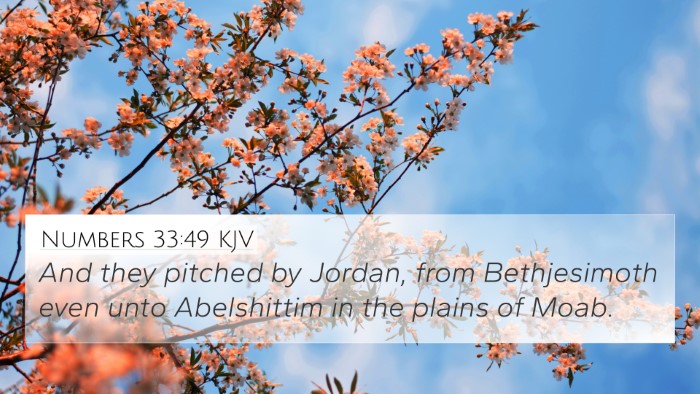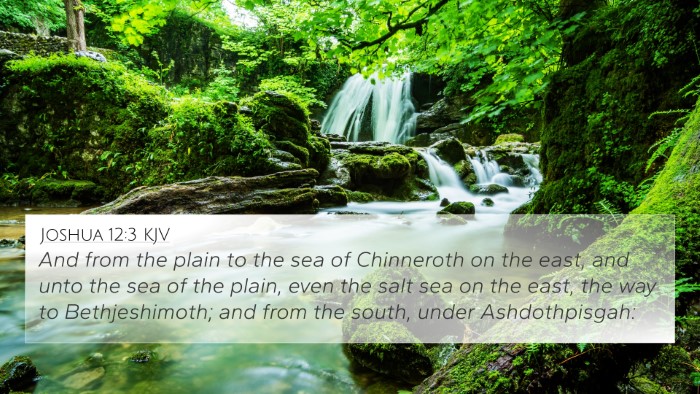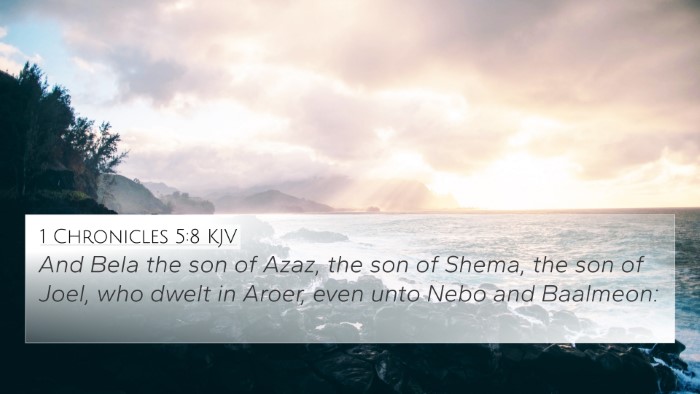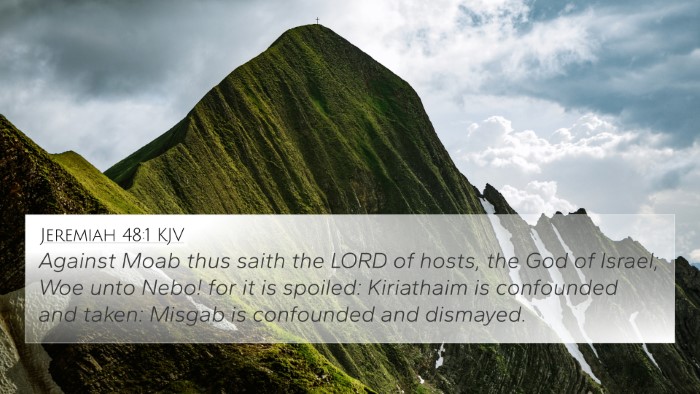Understanding Ezekiel 25:9
Ezekiel 25:9 states:
"Therefore behold, I will open the side of the Moabites, from the cities, from their cities which are on their frontiers, the glory of the country."
Summary of Meaning
The verse originates from a prophetic context where God pronounces judgment upon Moab, a neighboring enemy of Israel. Through the prophet Ezekiel, God communicates the impending chaos and destruction that will befall the Moabites, highlighting His sovereignty over the nations.
Exegesis and Analysis
According to Matthew Henry, this verse serves as a declaration of God's judgment against Moab for its pride and opposition to Israel. The term “glory of the country” underscores the significance of the cities that will be judged, reflecting their importance to the Moabites. Henry explains that the cities symbolize the pride of Moab, which would soon be humbled.
Albert Barnes adds that the prophecy illustrates a divine response to Moab's conduct, often marked by arrogance and hostility toward Israel. Barnes interprets the judgment as not merely a geographical loss but a spiritual defeat, implying that the Moabites will be stripped of their identity and strength.
Adam Clarke elaborates that the passage has implications for understanding God's character. It reveals God's righteousness in administering justice not just on Israel but also on its adversaries. This hints at a larger theological theme where God's justice reigns universally among all nations, reiterating that none can escape His judgment.
Cross-References and Thematic Connections
This verse can be connected to multiple themes and cross-references within the Bible:
- Jeremiah 48:1-47 - A comprehensive judgment against Moab, detailing God's pronouncement through the prophet Jeremiah.
- Isaiah 15-16 - Prophecies regarding Moab’s devastation, demonstrating the continuity of judgment themes.
- Numbers 24:17 - Balaam's prophecy about Moab, linking their eventual downfall to divine providence.
- Deuteronomy 23:3-6 - The historical antagonism between Israel and Moab, enhancing the narrative of conflict.
- Amos 2:1 - Another judgment prophecy against Moab, illustrating God's accountability for sin among nations.
- Zephaniah 2:8-11 - God's planned judgment against Moab and Ammon, reflecting His universal reign over all nations.
- Psalm 60:8 - A historical acknowledgment of Moab’s subjugation by Israel, reinforcing themes of conflict.
- Matthew 15:22 - Brief mention of a Canaanite woman from the region of Tyre and Sidon, which connects with the Moabite heritage and relational dynamics.
- Romans 15:9 - The extension of God's mercy to all nations, suggesting that even those judged can find grace through Christ.
- Revelation 14:8 - A pronouncement of judgment on "Babylon," symbolizing nations opposing God, including Moab's legacy.
Theological Themes and Implications
The implications of Ezekiel 25:9 stretch beyond its immediate judgment on Moab. It prompts a deeper understanding of:
- God's Sovereignty: The verse serves as a poignant reminder that God exercises authority over nations, deciding their fates based on justice.
- The Nature of Judgment: The pronouncement illustrates that divine judgment often correlates with how nations and people respond to God and His chosen people.
- Inter-Biblical Dialogues: The consistent theme of judgment across various prophetic writings invites the reader to perceive links between texts to construct a coherent theological narrative.
- The Call to Humility: The downfall of Moab teaches a broader moral lesson about pride. It serves as a caution for all to remain humble before God.
Practical Applications
This verse and its interpretations call believers to reflect on their relationship with God and the importance of humility:
- Self-reflection: It encourages individuals to examine any pride in their lives that might lead to spiritual downfall.
- Understanding God's Justice: A reminder that God holds nations accountable serves as a warning against injustice and the importance of righteousness in community affairs.
- Using Cross-References: Engaging with various related scriptures helps develop a more profound understanding of biblical narratives and God's ongoing story through the texts.
In Conclusion
Ezekiel 25:9 serves as a critical verse in understanding God's dealings with nations and His sovereignty over humanity. By examining this scripture in light of related passages, we can appreciate the intricate web of connections between different parts of the Bible. This cross-referencing leads to a richer, more profound grasp of theological dynamics, divine justice, and the call to humility.
